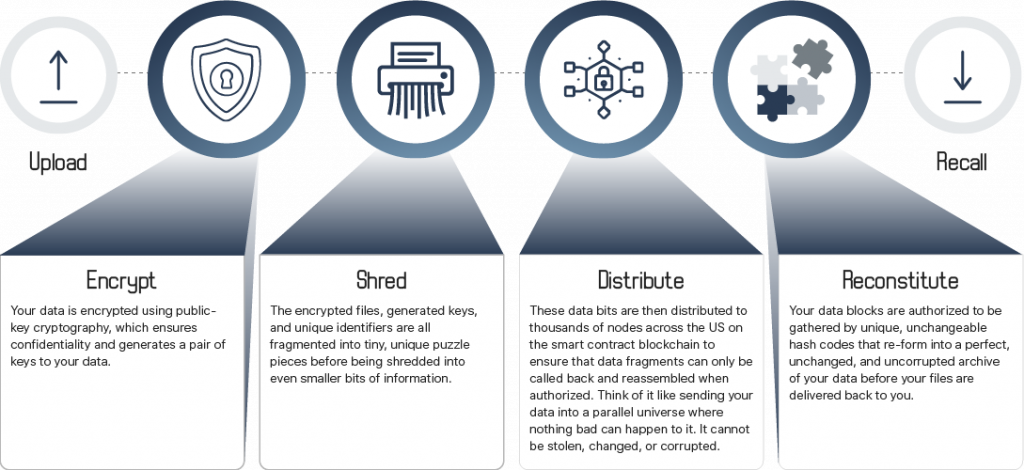For keeping data backup copies, decentralized, distributed storage systems can be made
using blockchain technology. These systems don’t use a centralized server; instead, data is
stored among a number of network nodes. Because there are several nodes where copies of
the data are stored, the system is more resistant to data loss. With encryption and the
decentralized nature of the system making it more difficult for unauthorized parties to access
the data, data kept on a blockchain-based backup system can also be more secure. It is
crucial to keep in mind, nevertheless, that blockchain-based storage systems could not be
as quick or effective as more established centralized storage systems.
Data backups could become obsolete thanks to blockchain technology, which has the ability
to completely change how we manage and save data. Data is kept on a single server or a
group of servers in a standard data backup system, and backups are created by copying the
data from the primary storage location to the backup location. The risk of data loss due to a
single point of failure and the potential for unauthorized access to the data by hackers or
other malicious actors are just two of the disadvantages of this strategy.

Data backup and storage can be done differently with the help of blockchain technology.
Data is saved on a decentralized network of nodes rather than a single server in a
blockchain-based system. The data is replicated across numerous nodes so that it is secure
and accessible even if some nodes go offline, and each node in the network has a copy of it.
The greater security and resilience of a blockchain-based system for data backup is one of
its main advantages. Data loss caused by a single point of failure is less likely because the
data is stored on several network nodes. Additionally, because the system is decentralized, it
is more difficult for hackers or other bad actors to obtain the data because they would have
to attack numerous network nodes.
An additional benefit of employing a blockchain-based system for data backup is the
simplicity with which the data’s integrity can be checked. It might be challenging to guarantee
that the data being kept is accurate and has not been altered in a standard backup system.
However, with a blockchain-based system, it is simple to confirm that the data has not been
changed because it is cryptographically signed and kept in a tamper-evident manner.
Blockchain-based backup systems may provide better scalability and flexibility in addition to
higher security and data integrity. It is simpler to add extra storage space as needed without
having to buy and install new hardware because the data is stored on a decentralized
network of nodes. This can be especially helpful for businesses that need to quickly grow
their storage capacity or need to store big amounts of data.
Blockchain technology can be applied in a few different ways for data backup. One method
is to keep the data on a public blockchain, like the networks for Bitcoin or Ethereum. In this
instance, the data is copied across numerous network nodes and stored on the blockchain
as a transaction. As public blockchains are not designed for large-scale data storage, this
strategy may not be the most effective one, even though it can provide some security and
decentralization benefits.
Using a private blockchain, which is one that is not accessible to the general public and is
instead maintained by a single organization or collection of organizations, is an additional
strategy. Private blockchains may be more suited for storing vast amounts of data since they
can provide greater control and flexibility than public blockchains.
Additionally, there are hybrid strategies that integrate components of both public and private
blockchains. For added security and tamper-evident storage, a company may, for instance,
store data on a private blockchain and then anchor it on a public blockchain.
With its increased security, data integrity, scalability, and flexibility, blockchain technology
has the potential to completely transform how we handle and store data backups. It is clear
that blockchain-based data backup systems have the potential to become an important tool
for organizations looking to protect and manage their data, even though there are still some
issues that need to be resolved, such as the requirement for more effective and affordable
ways to store data on the blockchain.


